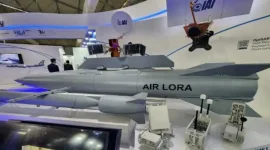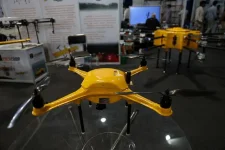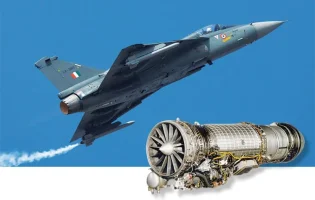India is set to strengthen its military capabilities by acquiring the acclaimed Javelin anti-tank guided missiles (ATGM) from the United States.
According to Defence Secretary R.K. Singh, the acquisition will follow a two-part strategy involving immediate purchases through emergency protocols and a long-term plan for manufacturing the missiles within India.
This move aims to urgently upgrade the Indian Army's anti-armour firepower in response to security challenges along the nation's borders.
The Javelin missile system, a joint venture between American defence firms Raytheon and Lockheed Martin, is widely regarded as one of the most effective man-portable anti-tank weapons in the world.
It is a "fire-and-forget" system, meaning it can guide itself to the target after launch, allowing the soldier to take cover. Known for its "top-attack" flight path, which targets the weaker top armour of a tank, the Javelin has a range of up to 4 kilometres.
Its effectiveness has been demonstrated in global conflicts, most notably in Ukraine, where it played a crucial role in countering armoured vehicles.
The Indian government's plan addresses both immediate and future needs.
Emergency purchases will be used to quickly equip troops, especially those stationed in sensitive high-altitude regions like Ladakh, where border tensions with China have been high since 2020.
In parallel, the long-term plan focuses on domestic production under the "Make in India" initiative. A Memorandum of Understanding (MoU) was signed in February 2025 between the Javelin Joint Venture and India's state-owned Bharat Dynamics Limited (BDL) to explore the possibility of co-producing the missiles locally. This would help create a self-reliant defence industry in India.
This procurement drive is underscored by a significant shortfall in the Indian Army's arsenal, which is reportedly lacking approximately 68,000 anti-tank missiles and 850 launchers.
Previous attempts to fill this gap have had mixed results. Emergency purchases of the Israeli Spike ATGM were made in recent years, but the system reportedly encountered performance issues during trials in the extreme heat of India's deserts.
The Javelin missile system also faced challenges during trials conducted in the high-altitude environment of Ladakh in 2024.
While the Javelin is being considered, India is also developing its own advanced anti-tank missile.
The Man-Portable Anti-Tank Guided Missile (MPATGM), created by the DRDO, is a promising indigenous system that has passed several key tests. However, it is still in the final stages of evaluation and has not yet been inducted into service.
This delay has created a strategic dilemma for the armed forces: whether to wait for the domestic missile or purchase foreign systems to meet immediate operational demands, which could risk undermining the indigenous defence program.
The potential Javelin deal is part of a deepening defence relationship between the United States and India. This partnership also includes high-profile projects like the joint manufacturing of GE F414 jet engines and the purchase of MQ-9B armed drones.
However, concerns remain regarding the Javelin's high price tag, estimated at over $178,000 per missile, and the extent of technology that would be transferred to India.
Analysts note that while the Javelin offers a proven capability to counter modern armoured threats, the final decision will require balancing urgent security needs with the country's long-term goal of achieving self-sufficiency in defence production.








